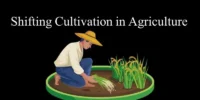Ethiopia’s Fight Against Drought with SPIT
Published: 10 Apr 2025

In Ethiopia, where agriculture sustains nearly 80% of the population, farmers have long struggled against the harsh effects of drought and unreliable rainfall. Crops failed, food became scarce, and families were forced to choose between survival and migration. But with the introduction of solar-powered irrigation systems, many smallholder farmers have found a new source of hope—using sunlight to save their fields and restore their livelihoods.
So, guys, without wasting time, let’s jump into the article to learn the Case Study Ethiopia’s Fight Against Drought with Solar-Powered Irrigation Technology
The Problem
In Ethiopia’s rural heartlands, farmers have long battled drought, watching crops wither and dreams fade under a relentless sun. But with the arrival of solar-powered irrigation systems, hope is rising from the dust—bringing water, food, and dignity back to the land.
Ethiopian farmers faced years of agricultural decline due to:
- Frequent and prolonged droughts
- Dependence on costly diesel water pumps
- Unpredictable and insufficient rainfall
- Low crop yields and increasing food insecurity
Without affordable and consistent access to water, many farms were left dry. This led to reduced harvests, increased poverty, and declining rural communities.
The Technology
Solar-powered irrigation systems use sunlight to pump groundwater directly to fields, replacing expensive and polluting diesel pumps. These systems are:
- Cost-effective over time
- Environmentally sustainable
- Easy to use and maintain
- Scalable for small farms
Supported by organizations like IDE Ethiopia and Sun Culture, the technology was introduced alongside training, financing options, and local technical support.
Implementation Process
At first, many farmers were unsure whether the system would work. However, pilot projects showed quick and visible results.
- Local training sessions were organized to teach installation and maintenance
- Farmer cooperatives helped with cost-sharing and access
- Early adopters saw clear benefits and shared their experiences, helping to grow trust
One farmer, Abeba, shared: “For the first time, I can water my crops even when the rain doesn’t come. I don’t have to borrow money to buy fuel.”
Results and Impact
The shift to solar irrigation had powerful results:
- Crop yields increased by up to 2x in the first year
- Water access became stable and predictable
- Household incomes grew, allowing for better food, schooling, and savings
- Many women farmers gained more independence in managing their own farms
- Diesel costs were eliminated, and carbon emissions reduced
Beyond numbers, the most visible change was in the confidence of the farmers. Fields once dry and cracked are now green and productive.
Challenges Faced
While the technology brought clear benefits, there were initial challenges:
- High upfront costs, which required subsidies or payment plans
- Limited technical knowledge, especially in remote areas
- Maintenance support was not always accessible at first
These were addressed through community training programs, mobile technician services, and partnerships with local cooperatives.
Long-Term Impact
Solar irrigation has sparked wider change in the region:
- Neighboring communities are requesting access to the same technology
- Drought resilience has improved significantly
- Children who once had to help with manual irrigation now attend school
- Local food supply has become more stable, reducing dependency on aid
This technology is not only transforming individual farms—it is rebuilding rural communities.
References
- IDE Ethiopia reports that solar irrigation has significantly improved water access and crop productivity for smallholder farmers.
- The World Bank recognizes solar-powered irrigation as a vital tool in enhancing climate resilience in Ethiopia’s agriculture sector.
Here is the online sources regarding Ethiopia’s Fight Against Drought with SPIT
Author Name
Getachew Alem Mera
Drought and its impacts in Ethiopia
Online resource

- Be Respectful
- Stay Relevant
- Stay Positive
- True Feedback
- Encourage Discussion
- Avoid Spamming
- No Fake News
- Don't Copy-Paste
- No Personal Attacks

- Be Respectful
- Stay Relevant
- Stay Positive
- True Feedback
- Encourage Discussion
- Avoid Spamming
- No Fake News
- Don't Copy-Paste
- No Personal Attacks





